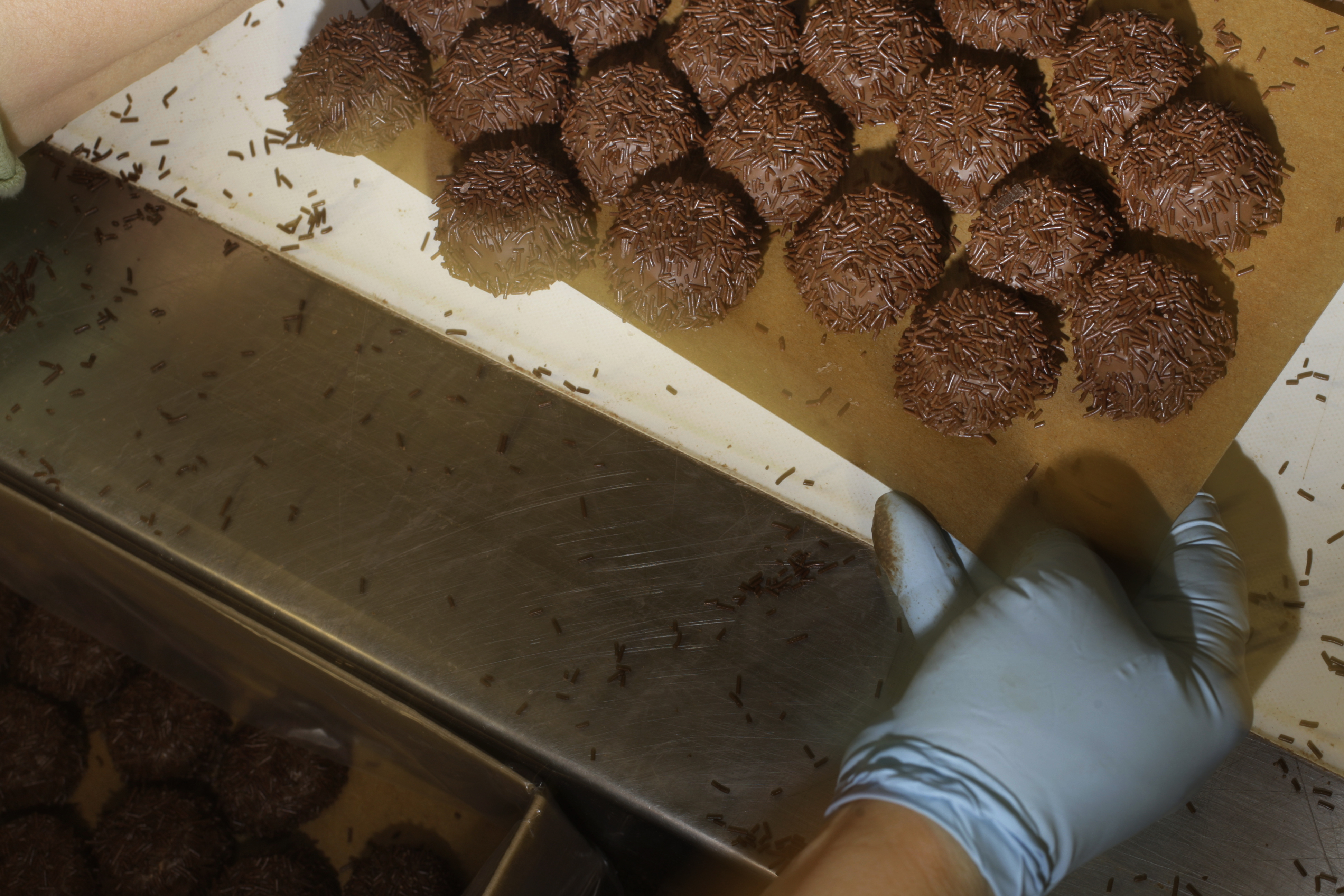
A recall of chocolate products due to possible undeclared allergens has been issued the second-highest risk warning by the U.S. Food and Drug Administration (FDA).
Abdallah Incorporated, based in Minnesota, issued a voluntary recall on August 25 for two chocolate products that contained potential undeclared peanuts and pecans. The FDA later issued a Class II risk classification for the recall on September 12.
Newsweek contacted Abdallah Incorporated for comment by email outside of regular working hours.
Why It Matters
A Class II risk classification, one of three, refers to a situation in which the “use of or exposure to a violative product may cause temporary or medically reversible adverse health consequences or where the probability of serious adverse health consequences is remote,” according to the FDA.
Peanuts and tree nuts, including pecans, are among the nine major food allergens as set out in U.S. law.
Allergic reactions vary in severity from mild symptoms, such as hives and lip swelling, to life-threatening complications, such as anaphylaxis, that may include fatal respiratory problems.
What To Know
The products impacted by the recall include the following:
Sea Salt Caramel Dark Miniature—item ID: 2237 ML—5.2 lb box
Cream Caramels Milk Chocolate—item ID: 2210L—6.26 lb box
One box of each item was included in the recall. They were packaged on July 22 and June 16 respectively, and distributed to Pennsylvania.
As of September 12, no illnesses had been reported by the FDA in connection with the consumption of the affected products.
What People Are Saying
The FDA said on its website: “People with food allergies should read labels and avoid the foods they are allergic to. The law requires that food labels identify the food source of all major food allergens used to make the food.”
Dr. Sebastian Lighvani, the director of New York Allergy & Asthma PLLC, previously told Newsweek: “Every three minutes in the United States, someone ends up in an emergency room because of an allergic reaction after accidental ingestion of food.
“So even when we try hard, these reactions are happening. And if you look at the incidence of anaphylaxis, it has skyrocketed in the last five, 10, 20 years. And in the U.S., there’s like a 300 to 400 percent increase in the rates of anaphylaxis to foods.”
The FDA told Newsweek in January: “The FDA’s role during a voluntary, firm-initiated, recall is to review the recall strategy, evaluate the health hazard presented by the product, monitor the recall, and as appropriate alert the public and other companies in the supply chain about the recall.
“The FDA provides public access to information on recalls by posting a listing of recalls according to their classification in the FDA Enforcement Report, including the specific action taken by the recalling company. The FDA Enforcement Report is designed to provide a public listing of products in the marketplace that are being recalled.”
What Happens Next
The recall is listed as completed, according to the FDA.



